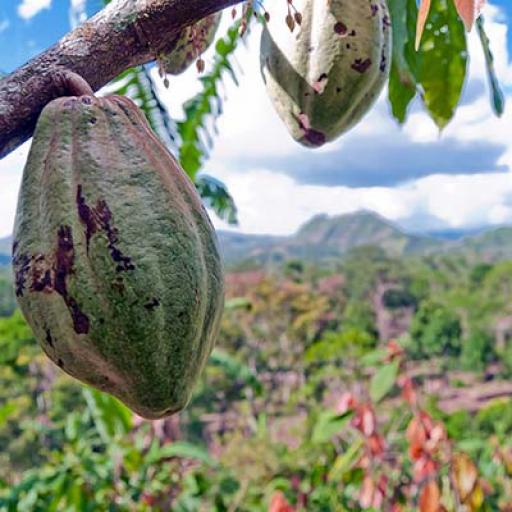
Recently Rated:
Program for 2015 Academia de Cacao
Overview
The purpose of the program is to provide participants with knowledge based on first-hand experience gathered in the field about the elements that lead to quality cocoa.
Who Should Attend This Program?
You should attend this program if you are working with cocoa and want to gain a strong understanding of the elements that contribute to quality cocoa. If you are a chocolate maker who is interested in working with your farmers to improve the quality of the cocoa you buy from them - from plantation management through harvesting and post-harvest processing, but want to know more about the science and mechanics of the processes, then this is the course for you.
If your job requires that you work with cocoa and issues of quality and sustainability are important to your job function then the Academia de Cacao will provide the understanding, complete with field work, to bring theory to life.
Day 0
Sunday, August 16
Arrive in Managua, check in to hotel, orientation dinner.
Day 1
Monday August 17 – Las Maderas
After traveling from Managua to Las Maderas in the morning, the first part of the day will be spent in an overview of the week's activities before going out into the field on Tuesday. The topics to be covered include:
- Genetics - An introduction to the cacao of Nicaragua and the current understanding of the genetic map of cacao (post Motamayor [2008])
- Plantation management
- Harvesting and post-harvest processing - from when the pod is removed from the tree through fermentation and drying
- Quality and quality assessment that includes how to properly conduct a cut test, how to identify defects in dried cocoa, and liquor tastings
All of these topics will be covered in more detail over the course of the rest of the program's field and class work. After dinner, the group the group will meet to review the day and answer questions.
Day 2
Tuesday, August 18 - In the field
Since startup, Ingemann Fine Cocoa (IFC) has propagated and distributed over 1,000,000 trees to farmers in the northern and eastern parts of Nicaragua. Fittingly, Tuesday will begin with a visit to a nursery that is home to approximately 200,000 trees. Topics to be covered include nursery basics and propagation and grafting techniques.

Following the visit to the nursery the group will travel to a production farm (~70 Ha or about 175 acres) to see how a modern farm is organized. Plantation management is the main topic that will be covered during this visit.
After visiting a modern production farm the next visit is a trip back into history to visit an old plantation, source of the mother trees in IFC's program. This will take place over the course of a roughly 90-minute hike.

At the end of the day the group will travel to El Cua where, after dinner, the group will meet to discuss the day.
Day 3
Wednesday, August 19 - In the field
After the visits to a large modern production farm and the ancient plantings on Tuesday, the first part of today will be spent visiting the farms of two smallholders (5-7 Ha) in Bocay. The average age of these plantations is under 6 years and the plan is to continue the discussion of plantation management on farms that are closer in scale to most farms around the world.
Afterwards, the group will also participate in training sessions identical to ones IFC organizes as a part of its regular farmer training programs and cover the business and technical aspects of what it takes to be a successful business owner, not just a cacao farmer.
Day 4
Thursday, August 20 - In the field
After an early start, the day will be spent harvesting and learning what steps can be taken to control quality from the moment pods are opened. Critical control points - and their impact - will be pointed out. Topics including measuring pH, temperature, and sugar levels will be demonstrated and their impact discussed.

After returning to the hotel and dinner, the group will meet to discuss the day.
Day 5
Friday, August 21 – Las Maderas and Managua
The day will be spent in the post-harvest processing facility in Las Maderas working with the wet mass that was harvested the day before. The discussion of critical control points in fermentation and drying will be continued, in depth.

At the end of the day, the group will return to Managua where there will be a final dinner to wrap up the week.
Saturday, August 22
Return home OR supplemental day
It is expected that most students will board their return flights home today. For those who have traveled a long way and would like to get in some sightseeing before the return home, a supplemental day for a modest extra cost (including hotel, meals, and transportation) is being planned. Please inquire if you are interested.
